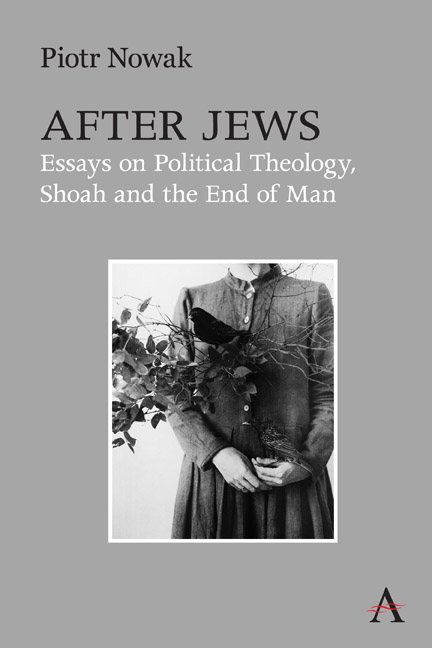Book contents
- Frontmatter
- Contents
- Preface
- Chapter 1 The Chosen Ones
- Chapter 2 The Secret of the Scapegoat
- Chapter 3 Making a Jew into a Christian
- Chapter 4 There Should Be Time No Longer
- Chapter 5 To Look Upon His Face and Yet Not Die
- Chapter 6 Ex oriente lux?
- Chapter 7 Pilloried by Necessity
- Chapter 8 German Rubble
- Chapter 9 Long Live!
- Chapter 10 The Living against the Dead
- Chapter 11 The Child of War
- Chapter 12 Plenty Coups and the End of the World
- Chapter 13 They Refugees
- Chapter 14 The Remainder of Christianity
- Bibliography
- Index of Persons
Chapter 4 - There Should Be Time No Longer
Published online by Cambridge University Press: 13 May 2022
- Frontmatter
- Contents
- Preface
- Chapter 1 The Chosen Ones
- Chapter 2 The Secret of the Scapegoat
- Chapter 3 Making a Jew into a Christian
- Chapter 4 There Should Be Time No Longer
- Chapter 5 To Look Upon His Face and Yet Not Die
- Chapter 6 Ex oriente lux?
- Chapter 7 Pilloried by Necessity
- Chapter 8 German Rubble
- Chapter 9 Long Live!
- Chapter 10 The Living against the Dead
- Chapter 11 The Child of War
- Chapter 12 Plenty Coups and the End of the World
- Chapter 13 They Refugees
- Chapter 14 The Remainder of Christianity
- Bibliography
- Index of Persons
Summary
I wish that whatever props up the walls of light
would fall, and darkness would come hurling heavily down,
And it would be thick black dark for ever.
Not sleep, which is grey with dreams
nor death, which quivers with birth,
but heavy, sealing darkness, silence, all immovable.
Sun of my soul, Thou Savior dear,
it is not night if Thou be near.
A back cover of the first edition of David Herbert Lawrence's Apocalypse bears information in three languages—in the original, German and French—about the exact thing the reader is holding in their hands. It reads:
In this his final attempt to make his interpretation of life understood, Lawrence uses the “Revelation of St. John” to convey what he believes to be the truth. In condemning the artificiality of all modern ways of living, he reveals by means of ancient symbols the proper relationship between man, his emotions and his environment. The last work of a dying man, “Apocalypse” deals with life not death; it is not the work of a scholar but the intuitive message of a poet.
A few words about the man to begin.
Life in Motion
D. H. Lawrence was born in 1885, in the small mining town of Eastwood, Nottinghamshire, where he attended local schools. He had a slight cough from his early days. His father worked down the mine; his mother was a teacher of artistic and intellectual ambition and, for the most part, the son's upbringing was her responsibility. In 1907, Lawrence became a teacher at the Davidson Road School in Croydon (now a district of London), which made his financial situation stable. He takes his first steps in literature propped up by Ford Madox Ford, who makes his poetry debut as well as publication of The White Peacock (1911) possible. Around this time, his mother dies of cancer, causing a nervous breakdown in the young writer and forcing him to resign from his teaching position. In March or April 1912, he makes the acquaintance of Frieda Weekley (née: von Richthofen), a mother of three children six years his senior, a Baroness and his former university lecturer's wife.
- Type
- Chapter
- Information
- After JewsEssays on Political Theology, Shoah and the End of Man, pp. 37 - 62Publisher: Anthem PressPrint publication year: 2022



